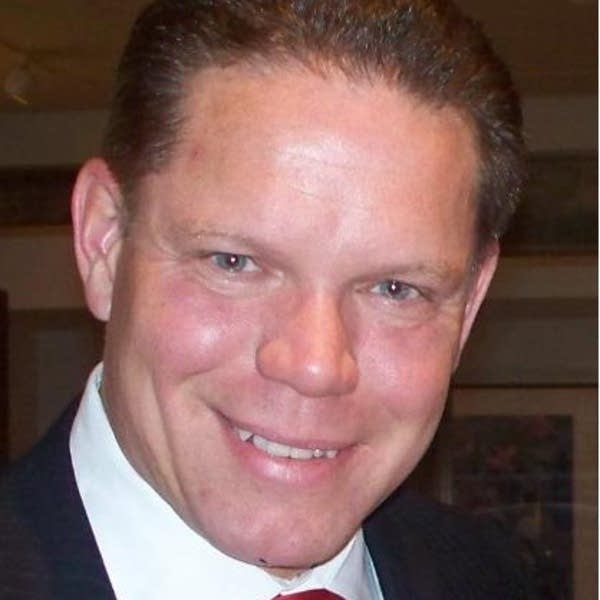Why we need Veterans Court in Minnesota

My law partner asked Dirk: When was the first time he realized that he had PTSD (Post Traumatic Stress Disorder)? Dirk said that he first realized it when he was sitting behind bars in prison in Stillwater for the rest of his life.
Dirk was a Navy Seabee who deployed to Kuwait in early 2003. He soon found himself driving an unarmored ammunition truck following the Marines as they fought their way up into Baghdad. As a Seabee, Dirk was trained in the construction trades, not combat. So he was ill prepared for the chaos and warfare that surrounded him.
In addition to combat support, Dirk was assigned to run a bulldozer unearthing one of Saddam Hussein's mass graves. The sights, sounds and smells of those experiences will be with him for the rest of his life.
Nine months later, Dirk found himself on a flight back to the United States. Dirk was asked to self-report whether or not he was suffering from any mental health issues as a result of his time in Iraq.
Create a More Connected Minnesota
MPR News is your trusted resource for the news you need. With your support, MPR News brings accessible, courageous journalism and authentic conversation to everyone - free of paywalls and barriers. Your gift makes a difference.
Knowing that if he answered "yes" he would likely be kept from going home to see his family, Dirk checked the box "no." Within days of being in Iraq he was back home in Minnesota.
Dirk tried to fit back into society. His family said that after he returned from the war he just didn't seem the same.
Dirk, who had no criminal record or driving infractions prior to going to Iraq, soon had several encounters with the law. His first was a ticket for driving on the wrong side of the road. After a couple of more tickets for speeding, he ended up with a DWI. Then the ultimate tragedy: Dirk killed his girlfriend. He was convicted of the murder and sent to prison for the rest of his life.
Again: After Dirk came home from the war he had at least four touches with the criminal justice system. Never once was he identified as a veteran of the Iraq war. A life was taken that might have been saved if Dirk had been diverted into a program to help with his PTSD.
This is not to excuse what Dirk did, and treatment might not have helped. We will never know if this tragedy might have been prevented.
This is why we need Veterans Courts in Minnesota. In many cases -- not all -- veterans who are in trouble might not be, if not for their military service.
There were 3.5 million Americans who served in Vietnam. Of those, between 1 million and1.5 million suffered psychological injuries. And of those, half had contact with the criminal justice system. Today many of those veterans are still incarcerated, still addicted or still homeless.
The Rand Corporation did a study reporting that 1.7 million Americans have served in the current conflicts. Three hundred thousand are reported suffering from some sort of psychological trauma. And 320,000 are suffering from the signature injury of these wars -- traumatic brain injury (TBI). Fewer than half reported their condition or sought help.
As a criminal defense attorney who focuses on representing veterans in the criminal justice system, I see firsthand that a veteran's first call for help often comes from the back seat of a squad car. This is after they have either turned to self-medicating or to reckless or violent behavior. What we did after Vietnam was to incarcerate those veterans. I believe we owe it to this generation of veterans to get them help. Veterans Court will do that.
Specialty courts such as DWI or mental health courts reduce recidivism. And the first veteran court in the country, in Buffalo, N.Y., has seen an almost 100 percent success rate in its program. It is good public policy, as it will reduce the cost of having to incarcerate veterans in the long run.
Veterans Court is not a get out of jail card for veterans. It holds them accountable for their actions at the same time that it gets them help for any psychological trauma they may have.
There will always be some veterans who are simply criminals and should go to prison. But if they are committing low-level crimes before the serious crimes, and we can divert them to treatment, that's a better outcome for society as a whole.
Most of our returning veterans are not getting in trouble with the law. They lead law-abiding and productive lives. They are our "Next Greatest Generation" of veterans, coming home ready to become business and community leaders. For the small percentage who are getting in trouble, Veterans Courts will help steer them toward success.
Dirk is sitting in prison for the rest of his life, suffering from untreated PTSD. The family of his victim has lost a mother, sister, daughter and friend whom they can never get back.
While I will never condone or excuse what Dirk did, I do believe that if he'd been identified as a combat veteran early on a life could have been saved. At some point Dirk could have been diverted to a Veterans Court and to the Veterans Administration for treatment.
----
John Baker is a partner in the Baker Williams Law Firm. He retired from the Marine Corps after serving 22 years. He chaired the initiative to get Veteran Courts started in Minnesota. He also chairs the Veterans Advocacy Institute and is the chair of the Minnesota State Bar Association Military Law Committee.
